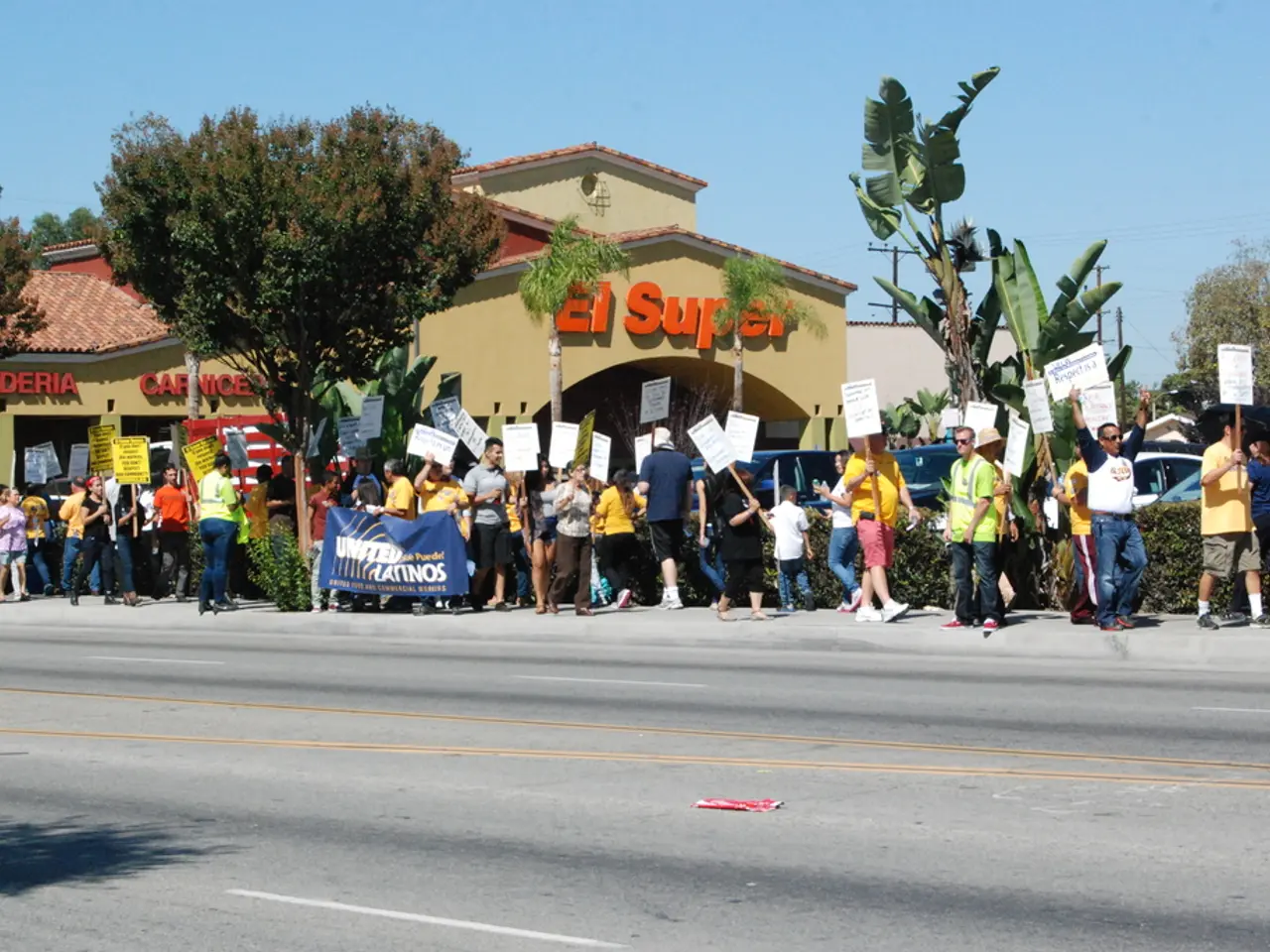United Kingdom to Lower Voting Age to 16 Prior to Upcoming National Election, Officials Declare
In a significant shift towards youth empowerment, Britain has announced plans to lower the voting age for national elections to 16 years old. This move places Britain alongside Austria, Brazil, Ecuador, and Malta, where 16-year-olds are already eligible to vote in certain elections.
While Malta only applies this policy to local elections, Austria, Brazil, and Ecuador have extended this privilege to national elections. However, the list of countries where the voting age is consistently 16 across most elections remains limited, with these four nations leading the way in this area.
In Scotland and Wales within the UK, 16- and 17-year-olds are already permitted to vote in local and regional elections. Despite this, the changes do not currently extend to UK parliamentary elections in these regions, and the planned change has not been implemented in Wales specifically.
Democracy Minister Rushanara Ali emphasised that the change would strengthen safeguards against foreign interference in British politics. However, it remains far from clear whether lowering the voting age will actually increase youth engagement, according to Stuart Fox, a politics lecturer at the University of Exeter.
Fox also suggested that beefing up the citizenship curriculum or expanding the provision of volunteering programs in schools could be more effective at getting young people, particularly those from the poorest backgrounds, to vote.
The changes come as the previous Conservative government introduced a requirement for voters to show photo identification in 2022, a measure that critics argue could disenfranchise millions of voters, particularly the young, the poor, and members of ethnic minorities.
The next national election in Britain must be held by 2029, but it could potentially be called before that by the government. The Labour Party, led by Keir Starmer, is expected to easily pass the changes in Parliament, as they currently hold an overwhelming majority of seats.
In addition to lowering the voting age, the government will introduce automatic voter registration and allow bank cards as a form of identification at polling stations. The changes to the electoral system, including lowering the voting age to 16, are the biggest reform since 1969.
The government will also tighten campaign finance rules to prevent shell companies from donating to political parties and introduce tougher sentences for people convicted of intimidating political candidates. The Labour Party pledged to lower the voting age before being elected in July 2024, and Deputy Prime Minister Angela Rayner stated that the changes aim to break down barriers to participation and increase engagement in U.K. democracy.
- The announcement of lowering the voting age for national elections in Britain has sparked a wave of news coverage, as it places the country among a handful of nations that allow 16-year-olds to vote in certain elections.
- The changes in UK's policy-and-legislation have been met with mixed reactions, as while supporters argue it will strengthen democracy by empowering youth, critics like Stuart Fox, a politics lecturer, question its effectiveness in increasing youth engagement.
- Despite Scotland and Wales permitting 16- and 17-year-olds to vote in local and regional elections, the UK parliamentary elections in these regions have not witnessed this change yet.
- The upcoming national elections in Britain, to be held by 2029, will see various changes, including lowering the voting age, introducing automatic voter registration, and tightening campaign finance rules, making it the biggest electoral reform since 1969.








